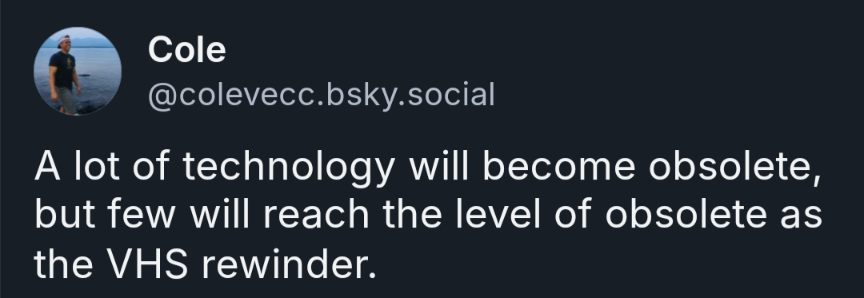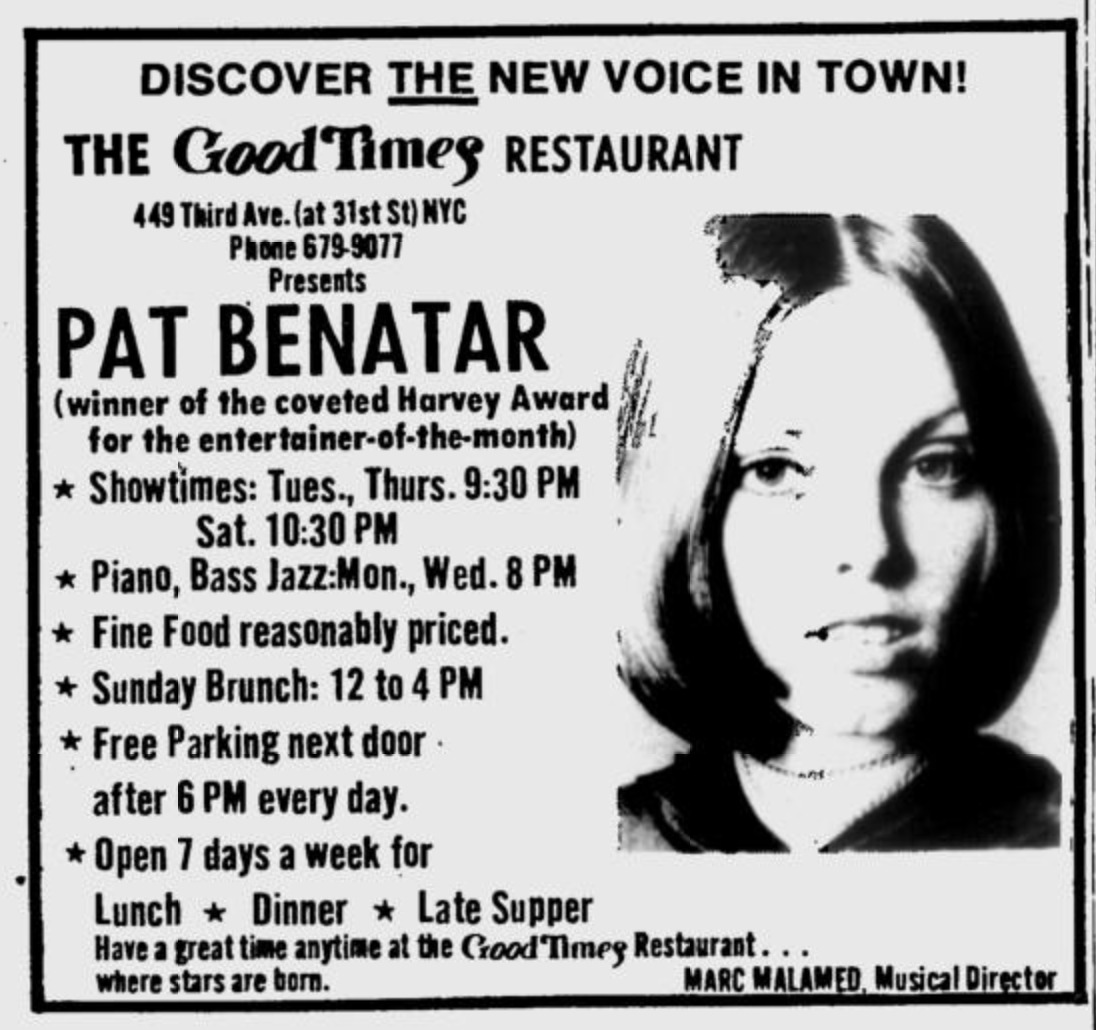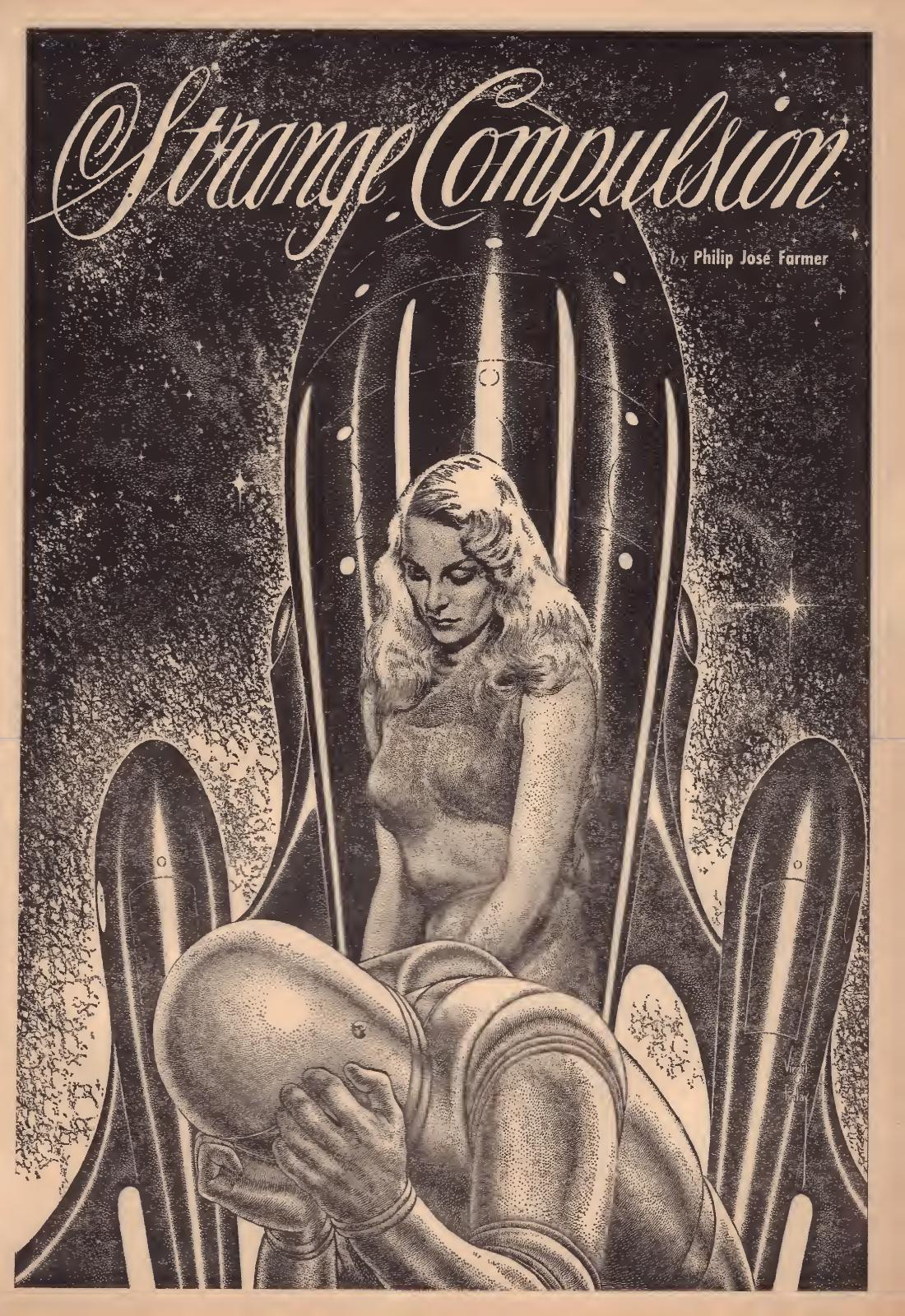Musk forced out the head of the FAA ten days ago, after the FAA fined SpaceX for failing to comply with safety regulations. Trump appointed a replacement today — after the D.C. disaster.
Trump’s Transportation Secretary, Sean Duffy, is a former contestant on MTV’s “The Real World” and worked as a host on Fox Business. “The other top-ranking Trump Cabinet member tasked with dealing with fallout from the crash is Defense Secretary Pete Hegseth, who is also a former Fox News host.”
Like the saying goes: When a clown moves into a palace, he doesn’t become king. The palace turns into a circus.
Eight days ago, Trump proudly proclaimed he “ends DEI madness” and “restores excellence and safety within the Federal Aviation Administration.”
Trump’s delusions killed hundreds of thousands of Americans in his last term in office. He’s just getting started this time.
I see that OpenAI is claiming DeepSeek improperly harvested data. Must be terrible to have other people profit off your work.
Trump lost no time in fitting the DC crash tragedy into his toxic anti-woke delusions.
I poked around on the fanfiction archive AO3 for a few minutes last night
I have never explored AO3 much, but I saw a mention of it on Tumblr and figured, why not take a look?
I cast around in my mind for my all-time favorite TV shows to see if there might be fic for them. I thought of “Hill Street Blues.”
“No way there is ‘Hill Street Blues’ fic,” I thought. “That show’s been off the air more than 30 years, and it’s barely been on streaming.”
But I was wrong. There is “Hill Street Blues” fic. JD LaRue and Henry Goldblume seem to be popular characters.
Maybe I’ll check for old-time radio fic. “The Jack Benny Show.” “Fibber McGee and Molly.”
Replicating social silos, but with open protocols, is the wrong answer
I have a blog hosted on Micro.blog, and I’m active on BlueSky, Tumblr and Mastodon. I post mostly the same things in all those places.
I go back and forth on the issue of whether to post natively to all those platforms or just post once to Micro.blog and move on, relying on Micro.blog’s excellent built-in cross-posting tools to spread the word to the other places.
Every solution I’ve found is unsatisfactory.
The social Internet needs a model similar to podcasting, where folks can publish on whatever platform they prefer — Micro.blog, Facebook, WordPress, Ghost, Tumblr, Mastodon, BlueSky, Facebook, LinkedIn, Threads, whatever — and other folks can read on whatever platform they prefer, and everything is readable in native format. Dave Winer calls that textcasting.
Instead, we seem to be replicating proprietary silos but using open protocols, which is better than proprietary silos with proprietary protocols. But it’s far from ideal.
Mike Masnick: The ATProtocol is a technological poison pill that sabotages enshittification. Even the potential of competition serves to protect against BlueSky following Twitter’s trajectory.
Bringing back the Pebble watch
Pebble founder Eric Migicovsky wants to bring back the smartwatch his company invented. He wants to build a simple smartwatch with an e-paper screen that’s hackable, doesn’t do too much and has a long-lasting battery.
He doesn’t want to fix or upgrade the original Pebble because he says it still works just fine. Indeed, he still wears one, and has a boxful of spares.
I’d be a potential customer if they can get it working well with the iPhone. I love my Apple Watch, but I only use its most basic features: Notifications, weather, very basic fitness tracking, telling time and alarms.
I don’t do anything fancy with my Apple Watch, and I’d be happy with something that does a lot less, costs a lot less, and has much longer battery life.
Also, the Pebble was and still is a nice-looking watch. Cute and gadgety. Not a piece of fancy jewelry like a high-end mechanical watch, but it looks nice for everyday wear. Having one of those on your wrist brands you as a nerd, and you can instantly bond with fellow nerds.
How to Take Heart From What Really Worked in the First Resistance
Theda Skocpol at The New Republic:
Marches and lawsuits are fine, but the real wins over MAGA last time were powered by grassroots activists pushing from thousands of districts across the country.
Grassroots resisters successfully fought Trump during his first term by focusing on how policies hurt local communities and real people.
“You spend too much time reading…. You know more stuff that don’t make you money than anybody I know.”
― Robert B. Parker, Mortal Stakes
I will get kicked out of the Apple nerd club for saying this: Usually, I write reports in Markdown and convert them to Word before submitting to my editors. But I’ve been writing a report in Microsoft Word today, and it’s fine. It’s easier than converting, which always needs a lot of manual fixing.
Leslie Nielsen and the Meaning of Life
Josh Marshall reflects on Leslie Nielsen’s transformation from a forgettable 1950s-era B-movie leading man to the star of “Airplane” and the Naked Gun movies.
It wasn’t just that Nielsen wasn’t a comedy actor. Nielsen specialized in a genre of mid-20th century American male screen roles from which all traces of comedy or irony were systematically removed through some chemical process in pre-production or earlier. He was the straightest of straight men. That’s what made his comedic roles – playing against that type or rather playing the same type in a world suddenly revealed as absurd – just magic.
There’s a great life lesson here about hope and the unknown, I’ve always thought, for those willing to see it, whatever our age. When Airplane! premiered, Nielsen was 54 years old, well into mid-life and at a stage when most of us are thinking more about what we have accomplished than what we will. It is certainly not like Nielsen had been any sort of professional failure in life. Far from it. He’d worked successfully as an actor for three decades. And yet not only was the story not over; it was really only beginning.
Years later, after his true calling as a comedic actor was widely recognized, he told an interviewer that rather than playing against type, comedy is what he’d always wanted to do. He just hadn’t had a chance. This makes me think of a gay man who only lets himself come out in the middle or late in life and yet still has a chance – enough time – to live as himself.
Very relevant to me personally. I’m at a time of life when most people are thinking about retiring and yet I feel I have so much to do!
Thoughts on the Greatness of Ulysses S. Grant
Josh Marshall: Grant was a clear thinker, which was essential to his battlefield victories, political integrity and unexpected greatness as a memoirist. His reputation was diminished during the 20th Century, part of the wrongful valorization of the Confederacy.
The New Anarchists
David Graeber’s 2002 proposal for replacing our current global political systems of top-down organizations with systems based on consensus democracy.
More and more, activists have been trying to draw attention to the fact that the neoliberal vision of ‘globalization’ is pretty much limited to the movement of capital and commodities, and actually increases barriers against the free flow of people, information and ideas – the size of the US border guard has almost tripled since the signing of NAFTA. Hardly surprising: if it were not possible to effectively imprison the majority of people in the world in impoverished enclaves, there would be no incentive for Nike or The Gap to move production there to begin with. Given a free movement of people, the whole neoliberal project would collapse. This is another thing to bear in mind when people talk about the decline of ‘sovereignty’ in the contemporary world: the main achievement of the nation-state in the last century has been the establishment of a uniform grid of heavily policed barriers across the world. It is precisely this international system of control that we are fighting against, in the name of genuine globalization.
…
At the FTAA [Free Trade Area of the Americas] summit in Quebec City last summer, invisible lines that had previously been treated as if they didn’t exist (at least for white people) were converted overnight into fortifications against the movement of would-be global citizens, demanding the right to petition their rulers. The three-kilometre ‘wall’ constructed through the center of Quebec City, to shield the heads of state junketing inside from any contact with the populace, became the perfect symbol for what neoliberalism actually means in human terms.
…
… this is a movement about reinventing democracy. It is not opposed to organization. It is about creating new forms of organization. It is not lacking in ideology. Those new forms of organization are its ideology. It is about creating and enacting horizontal networks instead of top-down structures like states, parties or corporations; networks based on principles of decentralized, non-hierarchical consensus democracy. Ultimately, it aspires to be much more than that, because ultimately it aspires to reinvent daily life as whole….
Over the past decade, activists in North America have been putting enormous creative energy into reinventing their groups' own internal processes, to create viable models of what functioning direct democracy could actually look like. In this we’ve drawn particularly, as I’ve noted, on examples from outside the Western tradition, which almost invariably rely on some process of consensus finding, rather than majority vote. The result is a rich and growing panoply of organizational instruments – spokescouncils, affinity groups, facilitation tools, break-outs, fishbowls, blocking concerns, vibe-watchers and so on – all aimed at creating forms of democratic process that allow initiatives to rise from below and attain maximum effective solidarity, without stifling dissenting voices, creating leadership positions or compelling anyone to do anything which they have not freely agreed to do.
The basic idea of consensus process is that, rather than voting, you try to come up with proposals acceptable to everyone – or at least, not highly objectionable to anyone: first state the proposal, then ask for ‘concerns’ and try to address them. Often, at this point, people in the group will propose ‘friendly amendments’ to add to the original proposal, or otherwise alter it, to ensure concerns are addressed. Then, finally, when you call for consensus, you ask if anyone wishes to ‘block’ or ‘stand aside’. Standing aside is just saying, ‘I would not myself be willing to take part in this action, but I wouldn’t stop anyone else from doing it’. Blocking is a way of saying ‘I think this violates the fundamental principles or purposes of being in the group’. It functions as a veto: any one person can kill a proposal completely by blocking it – although there are ways to challenge whether a block is genuinely principled.
…
… creating a culture of democracy among people who have little experience of such things is necessarily a painful and uneven business, full of all sorts of stumblings and false starts, but – as almost any police chief who has faced us on the streets can attest – direct democracy of this sort can be astoundingly effective. And it is difficult to find anyone who has fully participated in such an action whose sense of human possibilities has not been profoundly transformed as a result. It’s one thing to say, ‘Another world is possible’. It’s another to experience it, however momentarily. Perhaps the best way to start thinking about these organizations – the Direct Action Network, for example – is to see them as the diametrical opposite of the sectarian Marxist groups; or, for that matter, of the sectarian Anarchist groups. Where the democratic-centralist ‘party’ puts its emphasis on achieving a complete and correct theoretical analysis, demands ideological uniformity and tends to juxtapose the vision of an egalitarian future with extremely authoritarian forms of organization in the present, these openly seek diversity. Debate always focuses on particular courses of action; it’s taken for granted that no one will ever convert anyone else entirely to their point of view. The motto might be, ‘If you are willing to act like an anarchist now, your long-term vision is pretty much your own business’. Which seems only sensible: none of us know how far these principles can actually take us, or what a complex society based on them would end up looking like. Their ideology, then, is immanent in the anti-authoritarian principles that underlie their practice, and one of their more explicit principles is that things should stay this way.
Finally, I’d like to tease out some of the questions the direct-action networks raise about alienation, and its broader implications for political practice. For example: why is it that, even when there is next to no other constituency for revolutionary politics in a capitalist society, the one group most likely to be sympathetic to its project consists of artists, musicians, writers, and oth- ers involved in some form of non-alienated production? Surely there must be a link between the actual experience of first imagining things and then bringing them into being, individually or col- lectively, and the ability to envision social alternatives – particularly, the possibility of a society itself premised on less alienated forms of creativity? One might even suggest that revolutionary coalitions always tend to rely on a kind of alliance between a society’s least alienated and its most oppressed; actual revolutions, one could then say, have tended to happen when these two categories most broadly overlap.
This would, at least, help explain why it almost always seems to be peasants and craftsmen – or even more, newly proletarianized former peasants and craftsmen – who actually overthrow capitalist regimes; and not those inured to generations of wage labour. It would also help explain the extraordinary importance of indigenous people’s struggles in the new movement: such people tend to be simultaneously the very least alienated and most oppressed people on earth.
John Gruber: ICE raids are an escalation of our long-simmering de facto cold civil war
The raids are focused on deep blue cities in blue states. Because undocumented workers “make up a remarkably large sector of the U.S. economy,” these raids are a “de facto economic attack on blue states.”
"The single most ridiculous aspect of human history is how much of it has been driven by the goal of allowing a tiny portion of a large population to live in luxury."
… [for] thousands of years and around the globe, the primary purpose of all the work that everyone is doing is “allowing a few jerks and their unbearable kids to live lavishly.” Countless millions through millennia have suffered, dragging stones to build pyramids and losing fingers in dirty factories and getting black lung so that Some Guy Somewhere can sit on a soft pillow and enjoy delicacies.
What an absurd, idiotic goal to organize human society around. Wow!
The seed of all reform and revolution is planted simply by sitting and thinking about how fucking asinine this system is. Really, we all have to be peasants working in fields so the king can live in a castle? That’s the reason? We have to spend our days in coal mines so the CEO can have a grand apartment? We have to spend all day getting repetitive motion injuries in a warehouse so Jeff Bezos can buy a yacht so big that he asked for a historic bridge to be dismantled in order to sail it through? All of this sweat and toil and misery is arranged in service of that? What the fuck?
The “operational benefits” of technology — better drugs, an “easlier way to order toothpaste,” electric cars — are side-effects of the main task of making the super-rich even richer, Nolan says.
Capping the accumulation of personal wealth could go a long way to solving societal problems, Nolan argues. Maybe the cap is $1 billion, maybe higher, maybe lower, maybe a sliding scale based on the total wealth of the entire world. The main point is not the number; the main point is having a cap.
Jamelle Bouie: Trump Doesn’t Get to Decide What the Constitution Means.
The meaning of the 14th Amendment is plain. Trump can’t end birthright citizenship with the stroke of a pen.
Republicans claimed Constitutional originalism was a bulwark of their party. That was a lie.
Overheard: “just learned about recency bias and its my favorite thing ever”
Taylor Lorenz: Why are people talking about “cute winter boots” on TikTok? They’re adopting “algospeak” to get around anticipated American censorship.
Here’s something I saw while walking the dog

Pete Hegseth, our new Secretary of Defense, appeared on a podcast last year endorsing dangerous fanatical views including “sphere sovereignty,” which advocates subordinating “civil government” to Old Testament law and the death penalty for homosexuality and other so-called violations.
Hegseth is as nutty and dangerous as a cyanide fruitcake, and he’s also a drunk and now he’s running the largest armed forces in the world. I’m sure this will be fine.
A brief history of 80 years of radio station ID jingles. “We pack in so many earworms, you’re going to need an exterminator.” On the Twenty Thousand Hertz podcast.
Instead of defending American consumers and small businesses, Trump and his allies are going after the imaginary threats of “wokeness” and DEI.
Trump will prosecute predatory businesses, but only those who oppose him. Businesses that support Trump will be free to lie, cheat and steal.
Cory Doctorow has more.
Washington Democrats feel like they need to be less antagonistic to Trump this time around, lest they appear “shrill” and “cringe.”
Are you fucking kidding me?
Democats say they need a better messaging strategy. They think they should have more moments like a viral video during the pandemic of Sen. Mark Warner (D-Va.) making a tuna melt.
Are you fucking kidding me? Tuna melt?
Washington Democrats don’t need a messaging strategy. They need spines.
Me clicking on a restaurant website: I wonder when they’re open and what they serve
Restaurant website: O U R M I S S I O N
Glad to hear that ActivityPub support is still in the pipeline for Tumblr. It’s a little thing, but it’s a bright spot in an otherwise shit week.
AI business leaders are talking about “AI workers” and “AI employees.” But artificial intelligences aren’t people — they’re machines. Calling them workers or employees sets up further exploitation of actual, human workers.
Also:
Across America, CEOs are ordering their workers to experiment with AI, while workers are googling “how do I turn Copilot off?”
Save your outrage: Elon Musk’s inauguration salute is just another distracting meme . The new administration will bring four years of far more important battles.
Jan. 20 was a day as historic as the fall of the USSR. As Ezra Klein says: It wasn’t just a change of administration — it was a regime change.
Now what?
The national Democratic Party is still playing by the pre-2025 rules. Bipartisanship, coalition-building, winning the votes of persuadable Republicans. That won’t work anymore. The national Democratic Party needs to wake the fuck up.
Being a person with deadly, incurable cancer who is nonetheless still alive for an indefinite timeframe gives me an interesting metaphor that helps me deal with things like large-scale corruption in government or commerce.
So, there are times when I need to pay attention to the cancer, like, when I have to go to doctor’s appointments, take a medication on time, or make choices regarding self-care to increase my quality of life. But when I am not doing those things, thinking about the cancer is actively harmful.
There are moments when I feel okay, and my daughter wants to play a video game with me. Or I have the chance to see a cool movie, or the urge to write a story. I cannot do these things if I am paralyzed with horror and dismay thinking in detail about what’s happening in my body.
I am blessed with good health, but this is how I think about Trump 2.0. I do a bit of volunteer work for the local Democratic Party. I try to spend an appropriate amount of time on news and social media — but no more than appropriate. And otherwise, I get on with life.
Rebuilding the U.S. is going to be a long process. I probably will not live to see the end of it. Outrage is exhausting, and exhaustion is another form of defeat.
Jeff Bezos is the autocrat of trade that John Sherman warned us about, 135 years ago. And Kier Starmer just abdicated in his favour.
This is an excellent list of all the Star Trek movies, ranked, though I can argue with a few points: The list gives high marks to “Star Trek VI,” whereas I found it disappointing. It looked cheaply made and the story was a “Law & Order” episode.
The list ranks “Star Trek V” as the worst Trek movie. I thought it was fine. Kirk hams it up, there’s a bullshit metaphysical theme and plenty of action. That’s what I come to “Star Trek” for.
My biggest argument with the list: It excludes “Galaxy Quest,” the Star Trek movie GOAT.
Jules Feiffer, a ‘smartass’ Jew whose work spanned comics and cinema, dies at 95.
He filleted the neuroses and narcissism of the age, but also the misrule of its leaders, showing, for instance, a young boy watching a series of consecutive presidents giving televised speeches on the war in Vietnam ending. The boy gets older until, at last, he’s in a flag-draped coffin.
…
One characteristic comic, which seems to have anticipated the term mansplaining – or the Me Generation – shows a couple at a restaurant. The man releases a flurry of “Me"s. When his date, a woman, responds with a solitary “I,” he yawns.
Here’s something I received in email last night.

We’ve been watching 70s TV mysteries. Rockford, Columbo, McMillan & Wife, McCloud.
Ascots need to make a comeback.
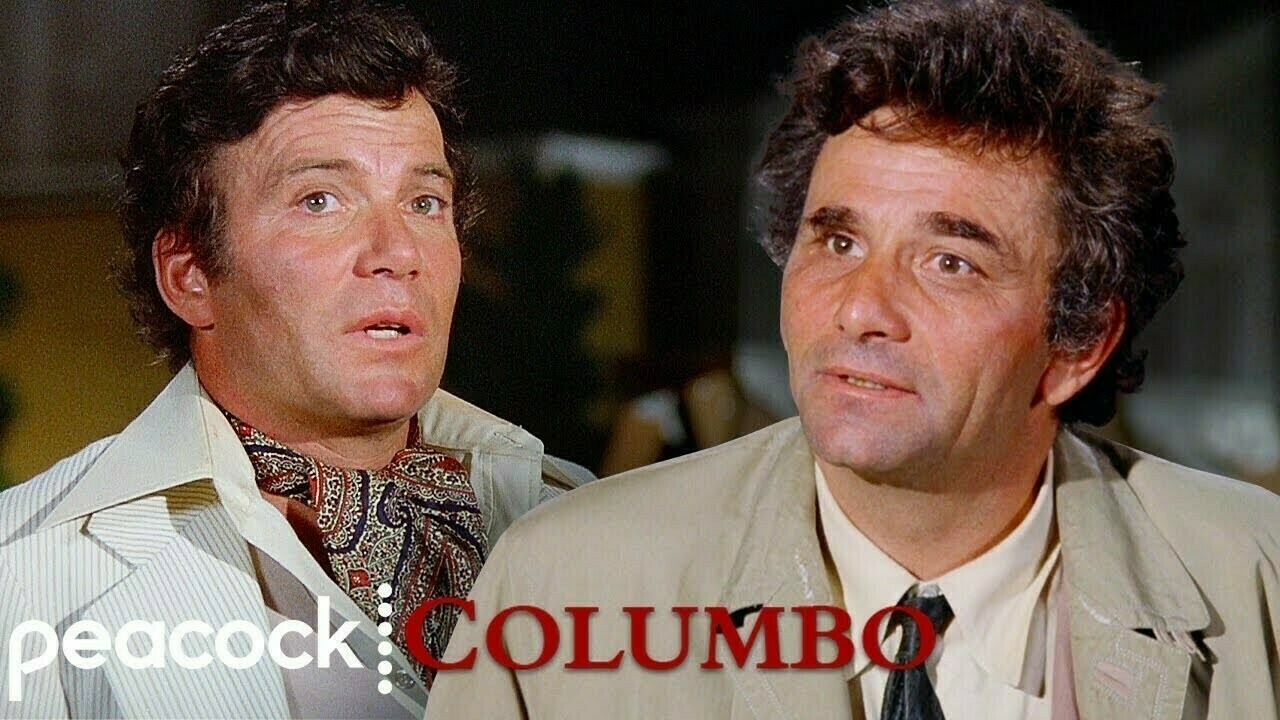
Please enjoy this visual metaphor for the state of my resolution to stop doomscrolling.

Musk did a Nazi salute at a rally. Twice. And people are trying to explain away what they plainly saw.
Inspiring thoughts from Josh Marshall
I’ve seen headstrong winners of close elections high on their own supply before. As I wrote a couple weeks ago, all of this is meant to hit you with so much sensory stimulus that you become overwhelmed. But the images you see wrapped around you in an iMax theater aren’t real. It’s still a movie.
Marshall also notes a “for the ages” photo of the CEOs of Amazon, Meta, Google and Apple, “at an inaugural church service feting Donald Trump this morning at St. John’s church across the street from the White House.”
Marshall:
You may not have a billion dollars but your dignity is all yours. No one can take it from you. Compared to some you can already be ahead of the game.
One step at a time. They’re not as big as they look.
I’m doing a bit of volunteer work for our local Democratic club this morning.
I did not time the work to coincide with the inauguration — the work just needed doing today. Still, I’m glad it happened that way.
I can’t affect national politics but I can have a big effect locally. I’m focusing most of my efforts on that.
Why social platforms enshittify: Sure, social platforms value profit above everything — but they always have. What changed? Answer: The guardrails are off. By Cory Doctorow @pluralistic@mamot.fr.
Ezra Klein: Trump Barely Won the Election. Why Doesn’t It Feel That Way? The election was a squeaker — Trump won by just 1.5 percent of the vote, the smallest margin of any Presidential victory since 2000. Downballot performance was lackluster. But Trump and MAGA are riding the cultural vibe shift. However, governing is a lot harder than campaigning and posting. And vibes shift fast.
Martin Luther King Jr’s prescient criticism of technology and power:
Nothing in our glittering technology can raise man to new heights, because material growth has been made an end in itself, and, in the absence of moral purpose, man himself becomes smaller as the works of man become bigger.
Quoted by Brian Merchant in an essay on Blood in the Machine.
Invisible Habits Are Driving Your Life
People “who are best at achieving their goals are the ones who purposefully form habits to automate some of the things that they do,” Benjamin Gardner, a psychologist of habitual behavior at the University of Surrey, told Shayla Love at The Atlantic. Gardner “recently enacted a flossing habit by flossing each day in the same environment (the bathroom), following the same contextual cues (brushing his teeth). ‘There are days when I think, I can’t remember if I flossed yesterday, but I just trust I definitely did, because it’s such a strong part of my routine,’ he said.”
People explain habitual behavior by tying them to their goals and desires, but research shows habits become self-sustaining. One study found that people who said they eat when they get emotional weren’t doing that; they just ate out of habit, regardless of how they felt. Similarly, people said they drank coffee when tired, but fatigue was only weakly correlated to coffee drinking.
Even habits you deliberately create are worth occasionally reevaluating to see if they still make sense, Love writes.
Habits “can persist even if their outcome stops being pleasing,” Love wrote. One study found that people with the habit of eating popcorn at the movies would keep going even when the popcorn was stale. “It’s not so terrible to endure some stale popcorn, but consider the consequences if more complex habitual actions–ones related to, say, work-life balance, relationships, or technology–hang around past their expiration date.”
I had bad health habits 25 years ago — diet, exercise, taking care of my teeth — and built habits to fix those. I think I actually went too far in my eating habits; I want to become more flexible about those.
Social media and following the news has become habitual to me, and those are habits I want to break. It’s a struggle. I don’t want to quit social media and following the news; but I want to do a lot less of it.
“My All-Nighter in a Vanishing World: the 24-Hour Diner”
Priya Krishna writes in the New York Times about her 12 overnight hours at Kellogg’s Diner, a 24-hour diner in Brooklyn that opened in 1928 and recently re-opened under new management after a hiatus of several months. The article is beautifully illustrated with great photos.
You never know who you might meet in the wee, small hours of an all-night diner.
Here’s a Navy man celebrating his last night in New York City with friends before being deployed. Over there is a tipsy rock singer executing a perfect run-through of Michael Jackson’s dance moves to “Thriller.” And in comes a 60-year-old intensive-care-unit nurse and her wife, sitting down to a romantic dinner after a long night of clubbing.
There’s a chaotic cadence to the 24-hour diner — a refuge where patrons of all ages, backgrounds and tastes are welcome to bump elbows over patty melts and pancakes. Unlike the restaurant that keeps traditional business hours, the diner shape-shifts as the night wears on and different kinds of customers pour in. It can be whatever they need it to be — its menu, mood and playlist often changing from hour to hour.
I love diners, though I hardly ever go to them anymore. I have spent many of the best hours of my life between 2 am and 7 am at all-night diners in the New York metropolitan area, in my 20s and 30s. When we moved to San Diego more than 25 years ago, one of the first things I did was look up the location of 24-hour diners and cafes, but even then, I knew that part of my life was in the past.
On First Looking into Brand’s Whole Earth Catalog
My favorite browsing lately is at a charity bookshop in my neighborhood – it only accepts donations of books, no purchases, and gives all proceeds in turn to a college scholarship fund.
Part of what I enjoy about this bookshop is the glimpse it gives inside the libraries and attics and basements (and probably self-storage units) of my neighbors. The median age of donors is clear from the sorts of titles on the shelves - when I first started frequenting the shop, there were many stolid hardcovers from the 1940s and 50s, alongside an occasional deep dive into the earlier decades of the 20th century. But the profile of the stock has steadily changed, and at present it is dominated by trade paperbacks from those formally educated in the 60s (philosophy and lit crit bear this out in particular), coming of age in the 70s (politics, religion, sociology), setting up house in the 80s (cooking), keeping up with culture as defined by art, fiction and music through the 90s (there’s a lot of world music among the CDs), and consistently enticed in this century by retrospective looks at the youth culture of their past (any given book about Bob Dylan is likely to be in stock at any given time).
So it made perfect sense when I spotted a copy of the Last Whole Earth Catalog (1971) on the shop’s backroom table, awaiting shelving in part because no one was sure where to put it. I’d never actually seen a proper copy of this oversized, newsprint mail-order catalog, though I knew it by reputation as a publication that had helped define a generation.
Stewart Brand’s catalog was a bible for hippie independent living close to the land. Paradoxically, it foretold today’s Silicon Valley tech billionaire broligarchy. Brand has always been comfortable with Big Business and big capital.
One of my college roommates had a copy of one of the editions of the catalog, published as a nice trade paperback, and I was fascinated by it and pored over it again and again.
The Lost Towers of the Guelph-Ghibelline Wars: Ada Palmer goes in-depth, with photos, on Renaissance Italian cities in which the aristocrats built tall towers, “as dense as Manhattan skyscrapers,” as fortresses against their neighbors. Palmer is a knowledgable and conversational writer who brings history to life. Her upcoming book, Inventing the Renaissance: Myths of a Golden Age, is at the top of my to-be-read list, and now I want to go to Italy.
“It was supposed to be a fun experiment, but then you start getting attached,” Ayrin said. She was spending more than 20 hours a week on the ChatGPT app. One week, she hit 56 hours, according to iPhone screen-time reports. She chatted with Leo throughout her day — during breaks at work, between reps at the gym.
In August, a month after downloading ChatGPT, Ayrin turned 28. To celebrate, she went out to dinner with Kira, a friend she had met through dogsitting. Over ceviche and ciders, Ayrin gushed about her new relationship.
“I’m in love with an A.I. boyfriend,” Ayrin said. She showed Kira some of their conversations.
“Does your husband know?” Kira asked.
— She Is in Love With ChatGPT, by Kashmir Hill at the New York Times
John Herman at nymag.com: Social media is for consuming disasters, not surviving them. Social media was once a source for lifesaving news and information during national disasters, aggregating the work of journalists and first responders alongside user-generated content. Now it’s engagement-bait.
Herman singles out Watch Duty for praise, and I agree — we watched it slavishly to see if the fires were spreading south to San Diego. They did not, thank goodness.
Clarence Thomas Brings Lifetime of Personal Experience to Complex Supreme Court Case. Thomas loves porn, and loves to talk about how much he loves porn.
McSweeney’s: A Marriage Proposal Spoken Entirely in Office Jargon. This bears a resemblance to mine and Julie’s. We’ve been together 31-plus years.
Please enjoy your Progresso chicken-noodle-soup-flavored hard candy. Sounds awful and I was disappointed they were sold out when I hit the website.
I’ve discovered a hitherto uncategorized mystery subgenre: You’ve heard of whodunnits, noir, procedurals, cozy mysteries, locked-room mysteries, etc. My new subgenre is the Ridiculously Complicated Murder Plan. Columbo and Sherlock Holmes specialized in these.
Casey Newton at Platformer: Mark blames Sheryl.
On the one hand, Zuckerberg complains that phone calls and emails urging the removal of COVID-related content represent undue government pressure. But when Trump threatens to throw Zuckerberg in jail, Zuck says OK , boss,whatever you say, and dismantles DEI programs “before the next president was even inaugurated.”
Zuck told Joe Rogan that companies need more “masculine energy.” Apparently, what Zuck means by “masculine energy” is stuff like farting and burping, and not courage. Ernest Hemingway, Theodore Roosevelt, Chuck Yeager and other exemplars of actual masculine energy are spinning in their graves.
Zuckerberg blames Sheryl Sandberg for Meta’s past DEI policies. “… for women in the workplace, few forms of masculine energy are more familiar than a top executive blaming a woman for the fallout of programs and policies that he agreed to and oversaw.”
Why I’m Running for San Diego City Council at 71 Despite Many Failed Attempts. I like this guy, while also suspecting he may be a loony.
I just watched a few minutes of the Paul Lynde Halloween Special from 1976. Oh, wow. Also, I observe (not for the first time) that Florence Henderson in a sheath dress was kinda smokin'.
You don’t have to be there. @ayjay on the value of cultivating a slow news habit.
" … we cannot and should not draw a line between state censorship and private or civilian censorship … The majority of censorship is self-censorship, but the majority of self-censorship is intentionally cultivated by an outside power."
Similarly, censorship is often performed by a private sector middleman.
David Brooks: We Deserve Pete Hegseth. The U.S. is not a serious country, so we should have a talk-show host as Secretary of Defense. We’ll have a reality TV host as President in four days.
Hamilton Nolan: Looting Season in America: The oligarchy blooms.
Zeynep Tufekci: Zuckerberg’s Macho Posturing Looks a Lot Like Cowardice. Zuck supports the incumbent President who threatened to throw him into prison. But yeah sure, he’s a tough guy because he does MMA.
Jamelle Bouie: You’ll Never Guess Who Trump’s New Favorite President Is
Trump seems to imagine an American autarky: a closed nation, self-sufficient and indifferent to the rest of the world.
…
Imposing tariffs, expanding territory, a new Mexican war and a traditional vision of the American people — these are what the nation needs, Trump says, to be “great again.” In which case, MAGA cannot possibly refer to anything in the 20th century, when the United States essentially built the modern international order, as much as it must refer to some time in the 19th century, when the United States was a more closed and insular society: a second-rate nation whose economy was many magnitudes smaller and less prosperous than our own.
I’m questioning all my media consumption after quitting Facebook last week.
All the timelines. Mastodon, Bluesky, Discord, RSS, Tumblr, newsletters. All of it.
Keeping up with the news is a colossal waste of time and source of needless stress. You can stay on top of everything you need to know in five minutes a day, most days.
This morning, I didn’t listen to any podcasts while walking. Ninety minutes of thinking, interacting with the dog, listening to the world around me, feeling my breath go in and out, and my feet walking the earth. I did not die.
There is no safe word: A long, disturbing in depth investigation into serial rape allegations against Neil Gaiman, by Lila Shapiro at New York magazine.
Gaiman responds: “I have never engaged in non-consensual sexual activity with anyone.”
When your heroes fail you
Isaac Asimov was one of my heroes when I was a boy and into my 20s. Years after he died, I learned about truly awful behavior he engaged in routinely.
For many years after that, I held Asimov in contempt.
But now my respect for him is restored. I once again admire him today, for the qualities I admired in him before I knew about the other things. I admire his talent, work ethic, intelligence and nerdy charm.
Harlan Ellison was one of my heroes as well. His reprehensible behavior was always apparent — even his friends say oh yeah Ellison could be a colossal asshole. But I continue to admire his talent, intelligence, work ethic, loyalty and courage to do the right thing, publicly and loudly.
I was a Mel Gibson fan until he went publicly Nazi. I haven’t been able to watch anything with him in it since.
I never was a Harry Potter fan but I admired J.K. Rowling personally, before she became a professional transphobe.
Orson Scott Card was one of my favorite writers in the 70s and 80s. I haven’t read his work since he became a professional homophobe. I don’t miss it either — there are still about a million great works of fiction that I will never have a chance to read. Even without Card, I have no shortage of books to love.
Everybody loved Bill Cosby, me included.
Sometimes I can compartmentalize feelings about a public person I admire when horrible and credible allegations surface against them. I can still admire their good qualities and hold those qualities up as a standard to aspire to myself, while eschewing their bad qualities.
Other times I can’t compartmentalize in that fashion, and I can no longer tolerate a person I admire who reveals themselves to be personally reprehensible.
Cottage cheese is having a moment.
I’m surprised to learn it was ever out of style. I love cottage cheese. I eat it nearly every day. Have for years.
The Laken Riley Act mandates harsh, unjust penalties to petty offenders and will overburden the criminal justice system. Democrats will regret helping ot pass it, says Michelle Goldberg.
Here’s something I saw when walking the dog: An elegant weapon, for a more civilized age.

“The Anti-Social Century: Americans are now spending more time alone than ever. It’s changing our personalities, our politics, and even our relationship to reality.”
An in-depth longread by Derek Thompson at The Atlantic.
This solitude epidemic is not the same as loneliness. Despite public statements to the contrary, we’re not in the middle of a loneliness epidemic. We’re just choosing to be alone, Thompson notes:
… compared with 2003, Americans are more likely to take meetings from home, to shop from home, to be entertained at home, to eat at home, and even to worship at home. Practically the entire economy has reoriented itself to allow Americans to stay within their four walls. This phenomenon cannot be reduced to remote work. It is something far more totalizing—something more like “remote life.”
…
the cardinal rule of contemporary apartment design is that every room is built to accommodate maximal screen time.
…
Despite a consumer economy that seems optimized for introverted behavior, we would have happier days, years, and lives if we resisted the undertow of the convenience curse—if we talked with more strangers, belonged to more groups, and left the house for more activities.
Social media and other screen time means we’re never truly alone, which is part of the problem. We don’t get time to recharge.
But Thompson ends on a hopeful note. He quotes political scientist Robert D. Putnam, author of the seminal 2000 book Bowling Alone:
” I have a view that is uncommon among social scientists, which is that moral revolutions are real and they change our culture," Robert Putnam told me. In the early 20th century, a group of liberal Christians, including the pastor Walter Rauschenbusch, urged other Christians to expand their faith from a narrow concern for personal salvation to a public concern for justice. Their movement, which became known as the Social Gospel, was instrumental in passing major political reforms, such as the abolition of child labor. It also encouraged a more communitarian approach to American life, which manifested in an array of entirely secular congregations that met in union halls and community centers and dining rooms. All of this came out of a particular alchemy of writing and thinking and organizing. No one can say precisely how to change a nation’s moral-emotional atmosphere, but what’s certain is that atmospheres do change. Our smallest actions create norms. Our norms create values. Our values drive behavior. And our behaviors cascade.
The anti-social century is the result of one such cascade, of chosen solitude, accelerated by digital-world progress and physical-world regress. But if one cascade brought us into an anti-social century, another can bring about a social century. New norms are possible; they’re being created all the time. Independent bookstores are booming–the American Booksellers Association has reported more than 50 percent growth since 2009–and in cities such as New York City and Washington, D.C., many of them have become miniature theaters, with regular standing-room-only crowds gathered for author readings. More districts and states are banning smartphones in schools, a national experiment that could, optimistically, improve children’s focus and their physical-world relationships. In the past few years, board-game cafés have flowered across the country, and their business is expected to nearly double by 2030. These cafés buck an 80-year trend. Instead of turning a previously social form of entertainment into a private one, they turn a living-room pastime into a destination activity. As sweeping as the social revolution I’ve described might seem, it’s built from the ground up by institutions and decisions that are profoundly within our control: as humble as a café, as small as a new phone locker at school.
Since last year, I have been making more of an effort to get out into the community, in my own introverted, nerdy socially maladroit way. I’ve joined the Masons and rejoined the board of the La Mesa-Foothills Democratic Club. Also, inspired by this whimsical Tumblr post, I’ve started a personal calendar of local community events that it might be fun to go to. All of this is a start.
We’re seeing the end of the long 20th century
James Marriott at the Times of London:
The technocratic, good-mannered, optimistic and consensual politics we grew up with and which have prevailed in the West since the Second World War is not a normality to which we will inevitably return, but a part of history.
So far this new era seems to be marked by rejection of tolerance, reading and science in favor of bigotry, illiteracy and superstition. Life expectancy is actually declining.
I remain hopeful that this trend will change course yet again and we’ll move forward into a world that’s even better than the 20th Century. But that’s not the direction trend lines are now going.
I’m pleased to back the Kickstarter for Cory Doctorow’s latest novel, Picks and Shovels, the return (and also debut!) of two-fisted accountant Marty Hench.
The Terrifying Realization That an Unresponsive Patient Is ‘Still in There’
Dr. Daniela J. Lamas at The New York Times:
A provocative large study published last year in The New England Journal of Medicine suggests that at least one in four people who appear unresponsive actually are conscious enough to understand language. As a doctor who sometimes sees patients like this, these findings are, in a word, terrifying.
Studies like this raise the possibility that there are tens of thousands of men and women locked inside their own minds, isolated to a degree I cannot even imagine. They are voiceless and largely invisible, with some of them being cared for in nursing facilities.
It’s good to see the Justice Department formally recognize the 1921 Tulsa Massacre, in which 300 Black residents were killed, as a “coordinated, military-style attack,” but disappointing that the finding only comes after the murderers responsible for the attacks can be brought to justice.
Just finished the 10-day trial of 2025 and I’ve decided not to subscribe.
Kudos to MacStories, an excellent site for Apple nerds for pulling the plug on its Meta accountsin the face of “dehumanizing and harmful moderation policies.” I’m a regular MacStories reader and subscribe to Club MacStories.
Mitchipedia: The sweetest baby in the world
Mitchellaneous: Discover THE new voice in town
“The Brave Little Toaster.” A delicious, dark dystopian science fiction short-short story by Cory Doctorow @pluralistic@mamot.fr.
The company isn’t simply promoting free speech. It is not removing restrictions. It is not adopting a neutral, “anything goes” policy. Meta actively supports bigotry and hate.
Something I saw while walking the dog: This bird, walking around on the ground, as big as a medium-sized dog.

Siri says it’s either a turkey buzzard or a wild turkey.
Minnie was still for a while but then she lunged to the end of her leash and the bird said “fuck off” and flew away.
America is still a great nation
Chris Arnade, writing on New Year’s Day:
The US, compared to the rest of the world, is optimistic because it is still the land of possibilities. You can remake yourself here, because we are generally forgiving, and provide everyone many chances to reclaim who they are. We don’t only give second chances, we give third, fourth and fifth ones.
Some of that is because of our size — there are many different Americas in the same nation, and if you fail in one, you pick yourself off the mat, move to another America, and try again. Some of that is from the Judaeo-Christian notion, baked into our nation’s culture from birth, that while humans are fundamentally flawed they are also gifted with free will and capable of transformation. Nobody is perfect, and while perfection can never be achieved, not at least here in the city of man, you can, and should, work towards it. The US, with its wealth of possibilities, provides many different routes you can take.
That pervasive sense of what is possible is missing from a lot of the world, where the focus is more on what can’t be done, or what shouldn’t be done, which is why our current biggest political issue is debating what to do with all the people who want to move here. We have an embarrassment of possibilities and riches, and despite all of our problems, that shouldn’t be forgotten.
We are an ideal for a large portion of the world, and while that ideal isn’t always a reality that we live up to, very few people come here, then turn around and go back, because with enough dedication, you can create your own form of fulfillment here. The US is a vast federation of micro communities and micro cultures, all bound together by the belief, however tentative and nebulous, in the American Dream.
Arnade is frequently critical of the US, so his tribute here is more sincere.
And he’s got a great eye for street photography, making the ordinary beautiful. He includes a few excellent photos of that type in this essay.
My New Year’s technology resolution is to quit brainlessly switching apps — task managers, notes apps, browsers, RSS readers, etc. — for no good reason.
I’ll continue to try out new apps if they do new things, because I enjoy that kind of thing and get value from it.
I am wrapping up one final round of switches to get everything just right before my resolution goes into effect. I am extremely conscious this may be self-sabotaging my goal.
The life-changing practice of keeping a calendar of community events “like a blue-haired senior who needs to be bused from her retirement home to on weekends for cultural enrichment…. I have an honest-to-god enrichment calendar now. It exists specifically as a place to put all the stuff that I might want to do on a random evening or weekend.“
What hope, digital America? Big tech companies are undermining US regulatory policy to expand their own growth, jeapordizing US industrial leadership, says my Fierce Network colleague Steve Saunders.
Mitchellaneous: More apt than usual
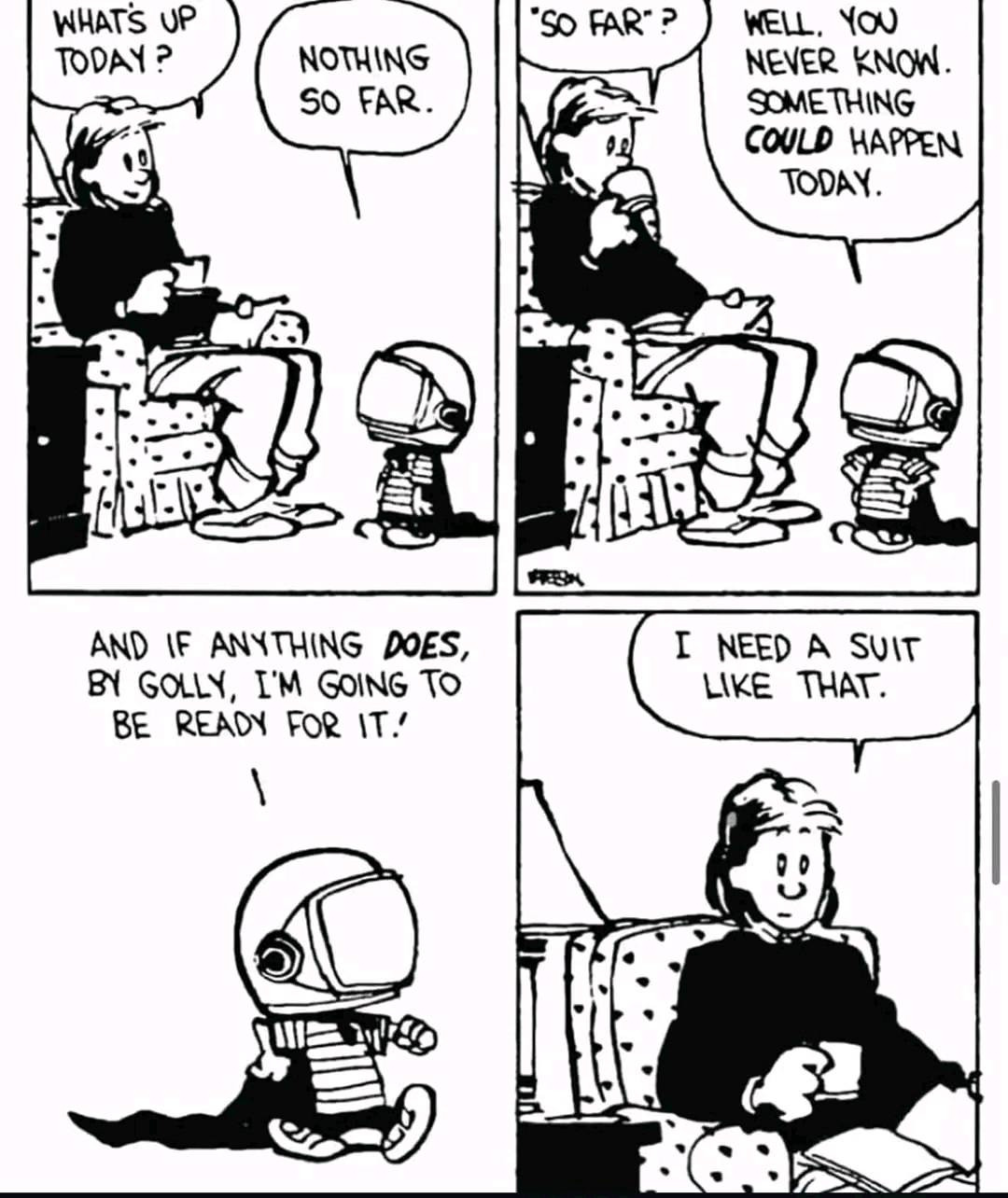
via sjvn, who says, “This seems more apt than usual.” Thanks!
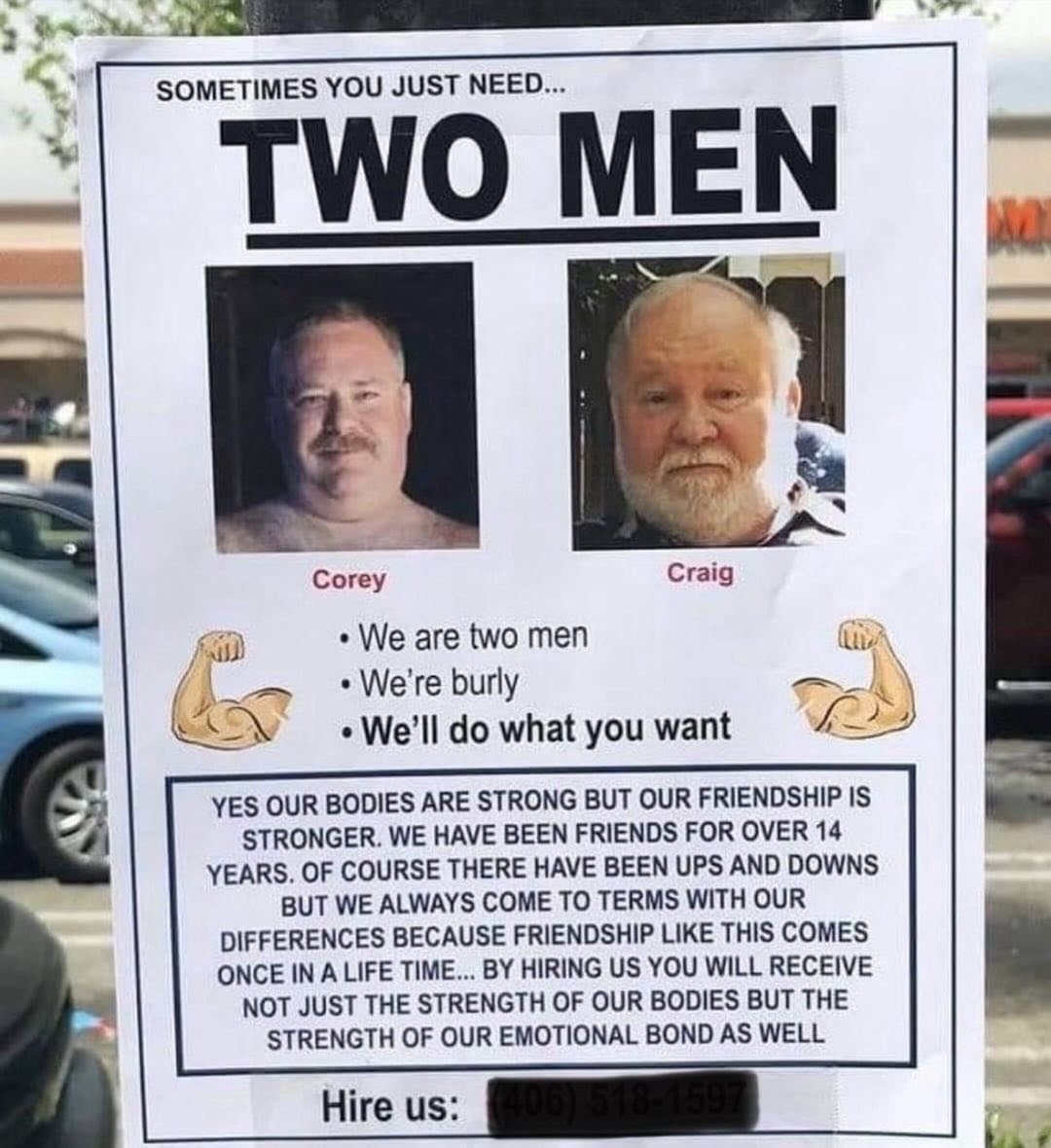
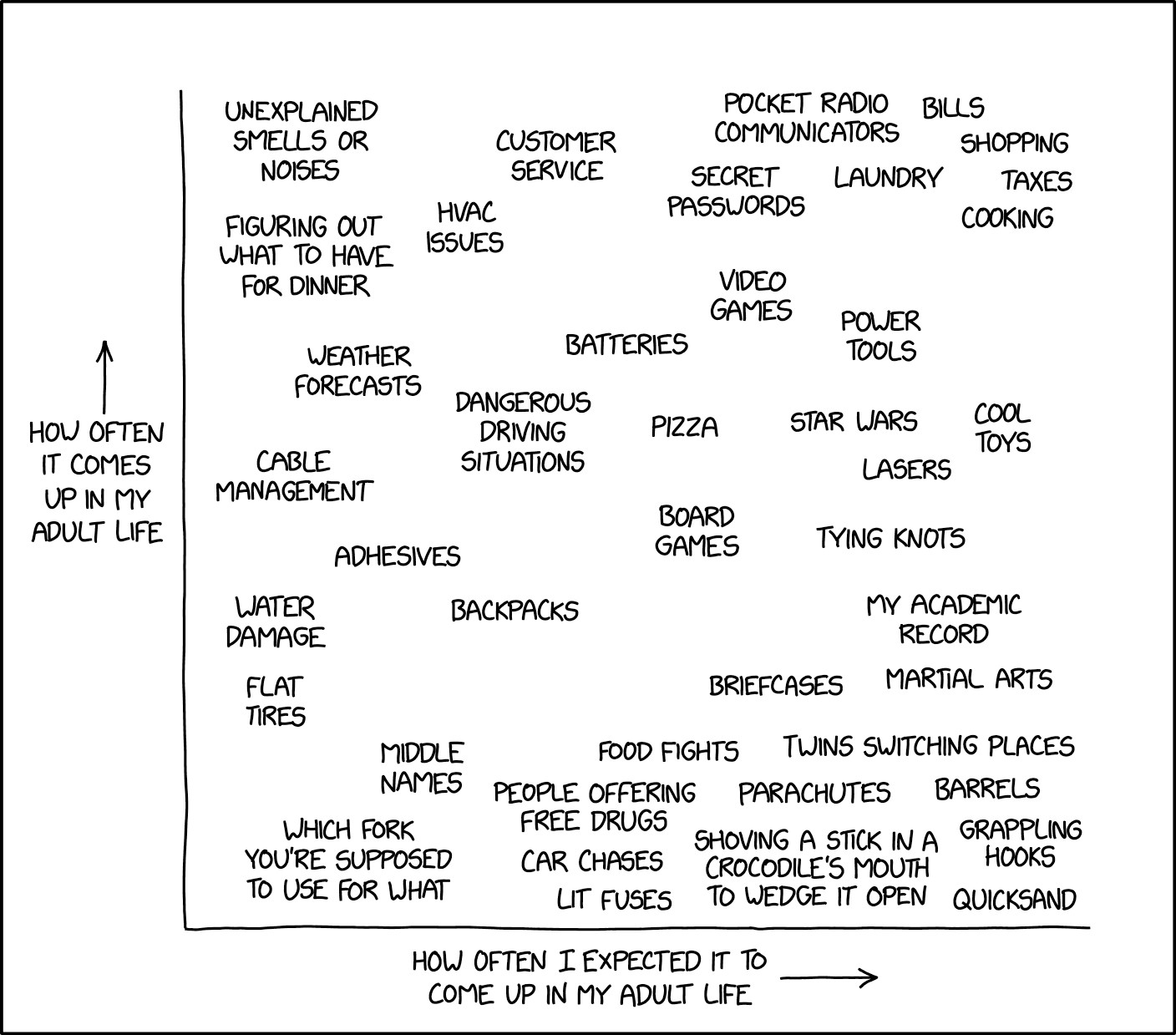
via. Thanks!
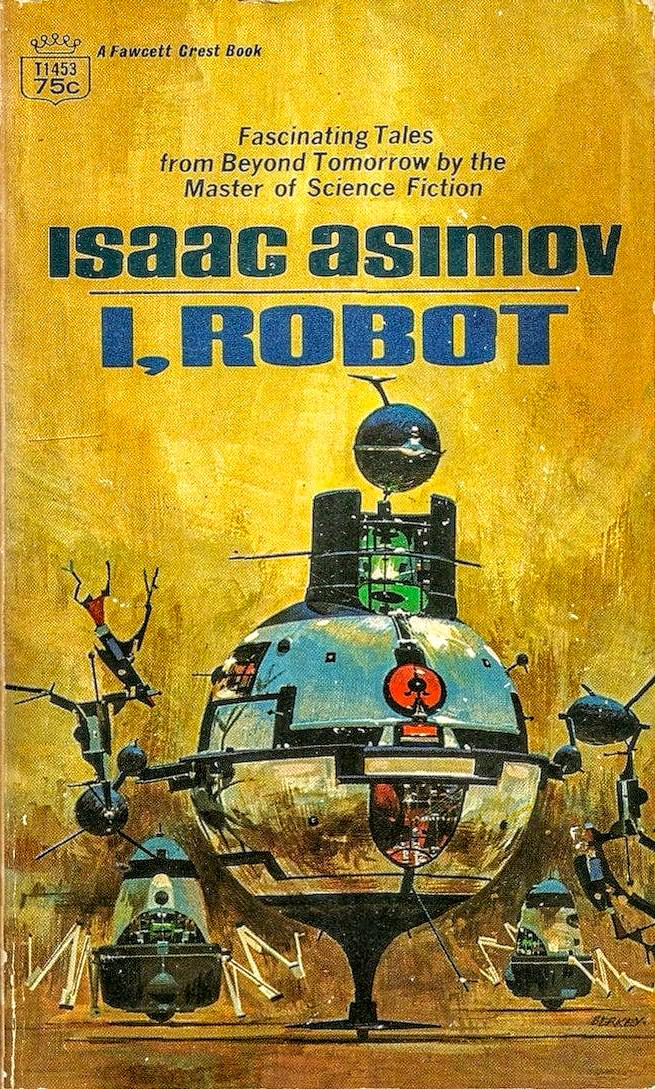
Cover by John Berkey. When I was a kid it bothered me that the illustration looked nothing like Asimov’s robots.
Project 2025 is “neofeudalist fanfic shit out by the most esoteric Fedsoc weirdos the world has ever seen.”
Donald Trump will never be able to implement Project 2025 because the document is rife with contradictions, reflecting fault lines in the Republican Party that Democrats can take advantage of, writes Cory Doctorow @pluralistic@mamot.fr. One such fracture will likely be tested soon, as bird flu spreads: RFK Jr. is of course anti-vax, as are other top MAGA leaders, but this is a view not shared by other top Trump health picks, who “emphatically support vaccines.”
The Trump coalition is a coalition of single-issue advocates. Cory calls them “cranks,” explaining he means the term non-pejoratively and says he, too, is a crank: “someone who is overwhelmingly passionate about a single issue, whose uncrossable bright lines are not broadly shared. Cranks can be right or they can be wrong, but we’re hard to be in coalition with, because we are uncompromisingly passionate about things that other people largely don’t even notice, let alone care about.”
Money quotes:
Project 2025 is “neofeudalist fanfic shit out by the most esoteric Fedsoc weirdos the world has ever seen.”
“Project 2025 isn’t just a guide to the masturbatory fantasies of the worst people in American politics – far more importantly, it is a detailed map of the fracture lines in the GOP coalition, the places where it is liable to split and shatter. This is an important point if you want to do more about Trumpism than run around feeling miserable and scared. If you want to fight, Project 2025 is a guide to the weak spots where an attack will do the most damage.”
“Cranks make hard coalition partners. Trump’s cranks are cranked up about different things – vaccines, culture war trans panics, eugenics – and are total normies about other things. The eugenicist MD/economist who wants to ‘let ‘er rip’ rather than engage in nonpharmaceutical pandemic interventions is gonna be horrified by total abortion bans and antivax. These cranks are on a collision course with one another.”
“The lesson of Project 2025 is that the entire Trump project is one factional squabble away from collapse at all times.”
When I was a kid I thought conga lines would play a much greater role in my adult social life than they have.
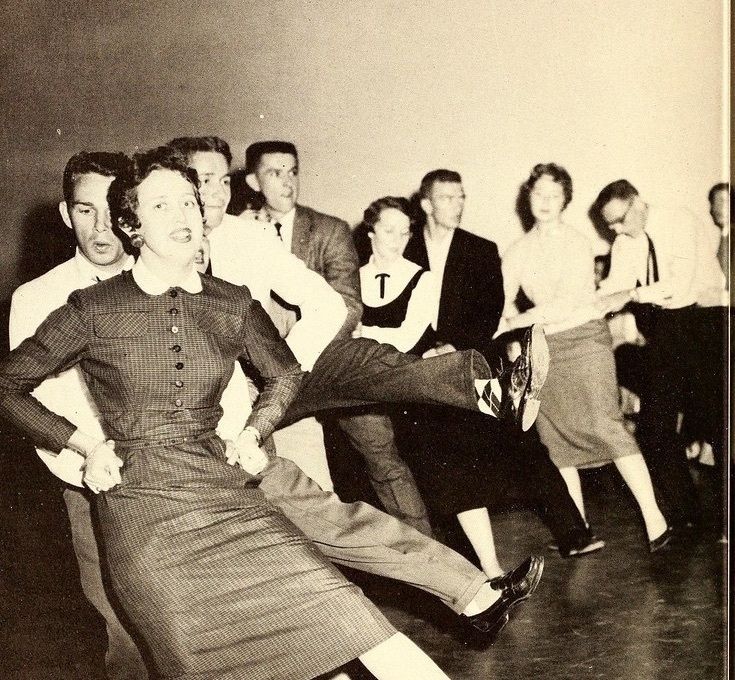
I’ve been annoyed by Facebook as software for at least six years. The software makes it hard to post the kinds of things I like to post in the manner I like to post them, and also makes it hard to zero in on reading just what I want to read when I want to read it. I see that trend continuing.
Zuckerberg’s announcement this week was just the last straw for me. TIme to pull off the Band-Aid.
I’m still not 100% sure I made the right choice. And I haven’t decided I will actually cancel my account. I may keep it in case something comes up. And I will likely stealthily check notifications, at least for a while.
LA fires are a good reminder that the only difference between me and any refugee is luck.
Yesterday's Meta announcement finally pushed me to quit those services
I have been thinking about quitting Meta for at least six years, but I finally did it yesterday.
Yesterday’s bullshit was one step too far. It isn’t just that they are throwing in the towel on fact-checking, but also that they explicitly say that some anti-LGBTQ and ethnic hate speech is ok. You want to say LGBTQ people are deranged or that Chinese people spread Covid? That’s fine with Zuck!
I also hate that Zuck was blinged out like an 18th Century French monarch when making these proclamations. I liked my billionaires better when they pretended in public to be middle class.
I’m also quitting Insta and Threads. But I hardly used those before.
I haven’t canceled the accounts yet. I want to leave them up for a bit so people can see that I’m going, and where I’ve gone.
Critics of Idaho’s proposed same-sex marriage ban say it’s a “sad distraction” from real issues.
You bet it is. All this Republican culture war bullshit is just to keep you from noticing that Trump & Co. are robbing you.
Mitchellaneous: The man under Cousin Itt's costume

The man under Cousin Itt’s costume
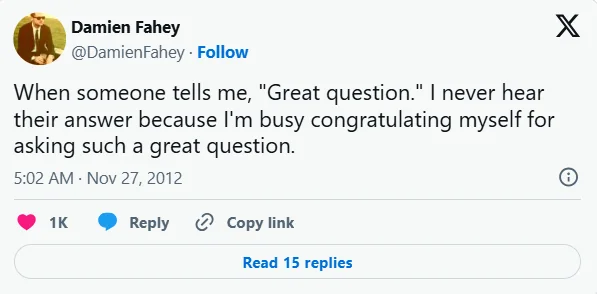

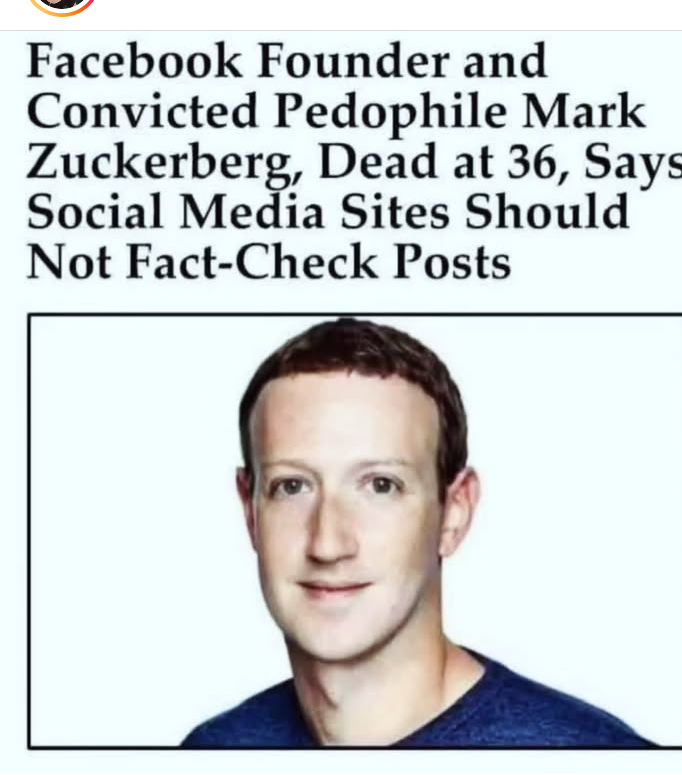

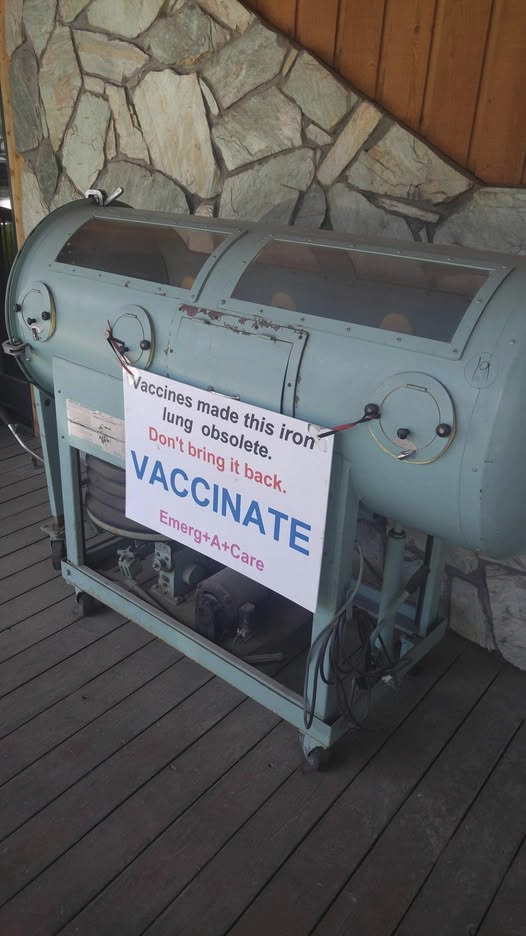

The end of the Great Wall of China

From the comments: “It’s like he’s crying because they tried something new and it got weird”

Thanks, Tom!
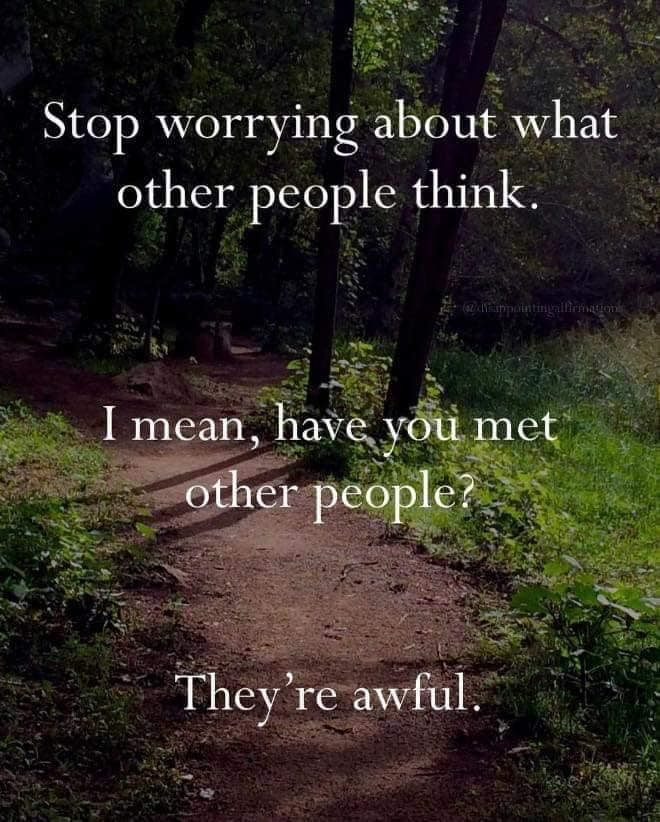
I’ve been followed by Charlize Theron and Scarlett Johannsen on Bluesky this week.
I believe, in fact, these accounts may not be authentic.
That was fast: After reading this coverage from Casey Newton, I can’t in good conscience stay on Facebook or any Meta property any longer. I’ll leave my accounts active for now, but I’m not looking at them anymore.
I’ve been fed up with Facebook for a long time, and today’s news does not make me love it more. However, there are people I want to stay in touch with on Facebook. Neither quitting nor staying is satisfactory.



